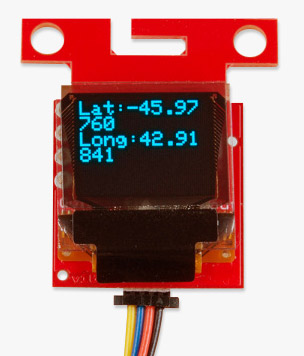MicroMod GNSS Carrier Board (ZED-F9P) Hookup Guide
Contributors:
 bboyho,
bboyho,  Elias The Sparkiest
Elias The Sparkiest
Resources and Going Further

Ready to get hands-on with GPS?
We've got a page just for you! We'll walk you through the basics of how GPS works, the hardware needed, and project tutorials to get you started.
Now that you've successfully got your MicroMod GNSS Carrier Board (ZED-F9P) up and running, it's time to incorporate it into your own project! For more information, check out the resources below:
- Schematic (PDF)
- Eagle Files (ZIP)
- Board Dimensions (PNG)
- Datasheet (PDF) (ZED-F9P)
- UBX and NMEA Protocol Manual (PDF) (ZED-F9P)
- Integration Manual (PDF) (ZED-F9P)
- Product Summary (PDF) (ZED-F9P)
- Release Notes - FW1.00 (PDF) (ZED-F9P)
- Example RTCM output (PDF) from the ZED-F9P
- u-blox ECCN (PDF)
- Arduino Library
- GitHub Hardware Repo
- SFE Product Showcase
Need some inspiration for your next project? Check out some of these related tutorials:
Building an Autonomous Vehicle: The Batmobile
Documenting a six-month project to race autonomous Power Wheels at the SparkFun Autonomous Vehicle Competition (AVC) in 2016.
GPS-RTK2 Hookup Guide
Get precision down to the diameter of a dime with the new ZED-F9P from u-blox.
SparkFun RTK Surveyor Hookup Guide
Learn how to use the enclosed RTK Surveyor product to achieve millimeter level geospatial coordinates.
SparkFun RTK Express Hookup Guide
Learn how to use the enclosed RTK Express product to achieve millimeter level geospatial coordinates.
Or check out this blog post for inspiration.